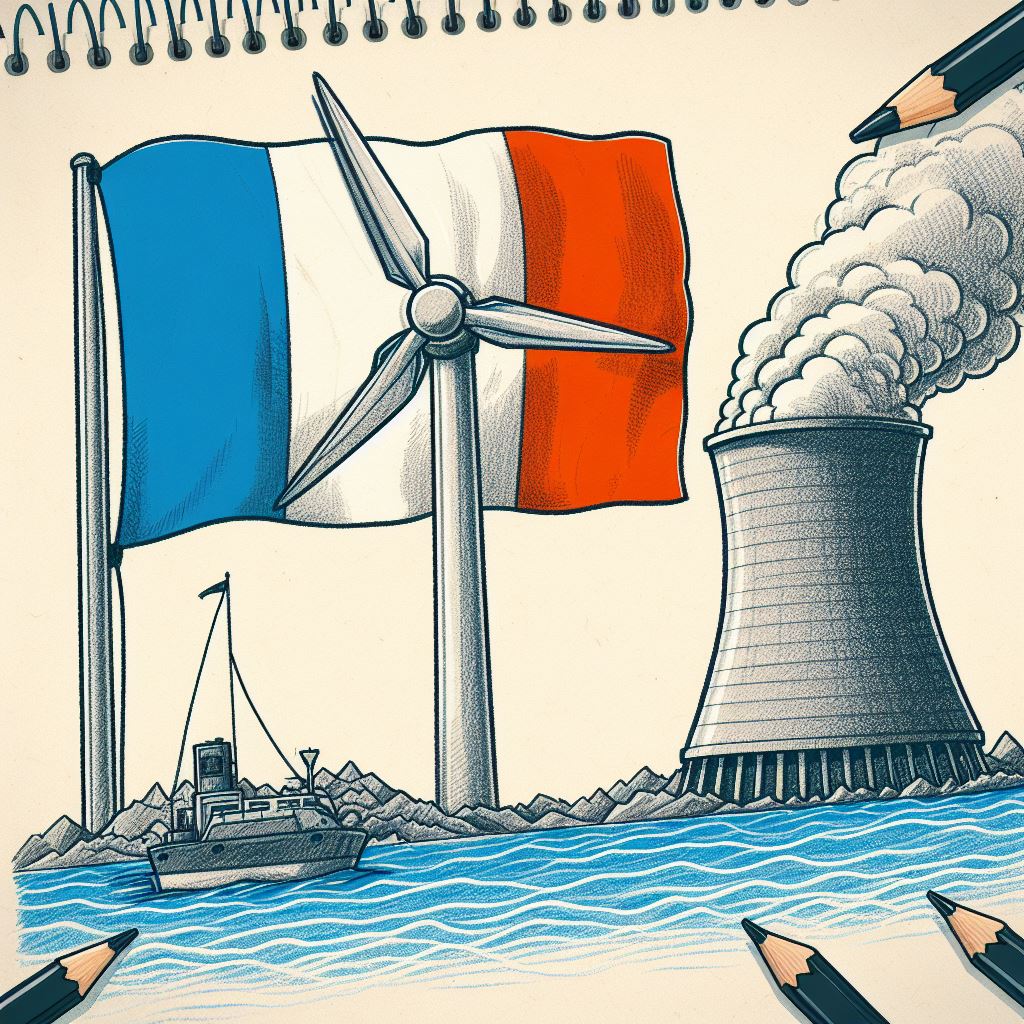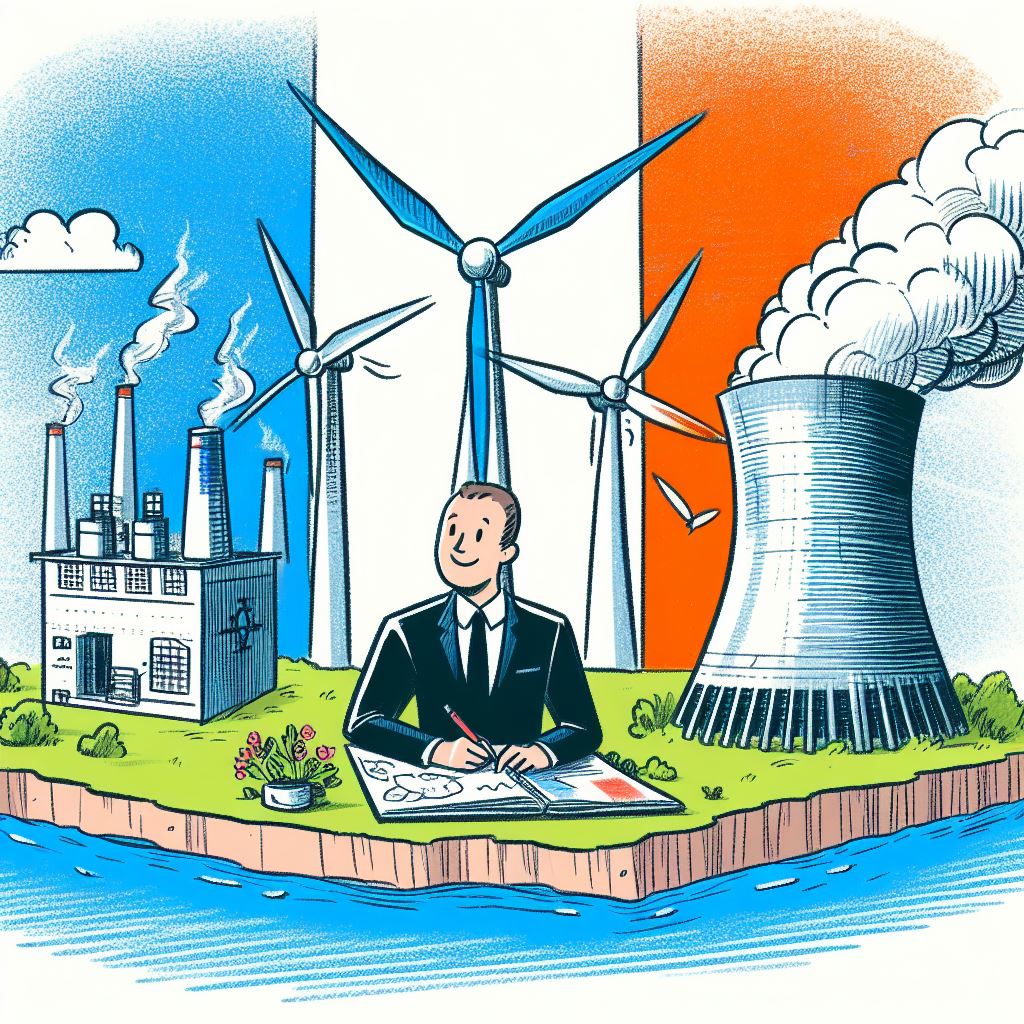Economy and business
The Macron’s plan for green energy will be an expensive and impopular failure

Macron’s government finally published how it intends to move to a completely green energy mix, and the French newspaper Les Echos made the plan public.
On ValeursActuelles Philippe Herline made a good analysis of it.
The stated goal is to be almost totally free of fossil fuels by 2050. Currently, 58 percent of total energy consumption in France comes from oil (37 percent) and gas (21 percent). When you consider how long it will take to create new sources of energy production and adapt the transmission grid to them, this goal is unrealistic.
There is a problem: this plan is technically impossible because France has peak electricity consumption (in winter, when people go home at 7 p.m. and when the French go on vacation if they drive electric cars) that renewables, which cannot be controlled, cannot provide (in winter evenings there is no sun or wind). And France cannot build nuclear power plants for these peaks; it makes no economic sense. Also, a nuclear power plant is not very flexible because the control rods have to be raised or lowered, a complex and slow operation, unlike a gas-fired power plant, which is easy to control.
Priority access to the power grid for renewables is already granted in France at the expense of nuclear power plants, which are forced to become flexible, thus increasing their operating costs. This is absurd, especially for old nuclear reactors. In addition, the electricity grid must be reinforced to absorb the shocks that will occur when wind turbines come on line, which will cost 100 billion euros over the next ten years, according to the Réseau de transport d’électricité (RTE), a figure that will add to consumers’ bills.
Is it possible to reduce French energy consumption by 40–50% by 2050?
This is the other condition set by Macron’s plan in order to move away from fossil fuels, but it is not publicized in the media, and for good reason: it involves halving total energy consumption, from 1,611 terawatt-hours in 2021 to 900 in 2050. Yet energy consumption has been stable in France for more than 30 years, so how can they reduce it? By better insulating homes with energy performance diagnostics (EPDs),? By decarbonizing industry (while advocating to reindustrialize it)? “Sobriety,” a concept that is really close to the one of “misery,”? If it’s about fighting waste, fine, but if it’s about dealing with shortages, we have descended to the level of emerging countries with recurrent power outages. Loïc Le Floch-Prigent reminds us that we need “abundant, cheap, and sovereign energy; otherwise, civilization will collapse.” “Civilization,” he says, not just the economy, is a vital issue.

How can we free France from its dependence on fossil fuels?
Does France have to leave completely fossil fuels? Electrifying everything is utopian, and the widespread use of electric cars is proving impossible both materially (lack of minerals or explosion in their price, lack of electricity during major departures, etc.) and economically (subsidizing the purchase of vehicles and the installation of charging points across the country). Moreover, how can France achieve this “transition” with a dysfunctional European electricity market that indexes the price of electricity to the last gas-fired power plant that went into operation—an aberration for us but a matter of survival for a Germany dependent on renewables? There can be no market for electricity that cannot be stored at guaranteed prices (for wind and nuclear power). When energy is storable and free-priced (oil, gas), a market can work, but Europe is doing the opposite.
A problem of dependence
Even if we succeeded, France and Europe would become dependent on a small number of countries: China (90% of rare metals), the Democratic Republic of the Congo (60% of cobalt production and reserves), a country dependent on China… Lithium is nowadays mostly produced in three South American countries, even if new reserves are discovered in California. With oil and gas, both natural and liquefied (LNG), European countries benefit from numerous suppliers scattered around the planet; with the complete electrification of our economy, this number would be limited to a few, including the Chinese giant, which alone is worse than an OPEC of rare metals! That would be suicide.
Production of all renewable energy will have to be massively increased. What are the expected results?
This approach is wrong. The French 18 nuclear power plants occupy 18 square kilometers. To replace one with wind turbines requires 1,000 square kilometers, and that is intermittent electricity. What about the rare metals needed to operate them? Above all, the two are not complementary. The criteria for good energy are: dense, storable, and accessible. This is true for oil, coal, gas, and nuclear energy, but not for wind and solar energy.
In contrast, France has had a contradictory policy on nuclear power, even considering divestment under socialist governments. The result is that now the plants are old and the lead in innovation has passed to Korea, China, Russia, and the US. France could reverse course, but only by investing heavily in facilities and human capital.
At this time, France and Europe have become dependent on liquefied natural gas from the U.S. or natural gas from the North Sea. Dependence from Russia has been replaced by American dependence. So why not exploit France’s own shale gas resources and help exploit Europe’s Mediterranean energy resources? This big question underlies the fragility of France and Europe, which lack the courage to face their own contradictions and are victims of failed energy policies.







John Abraham
February 11, 2024 at 11:26 am
Your explanations are easy to understand, even for beginners. If you’re interested in more information, click here.